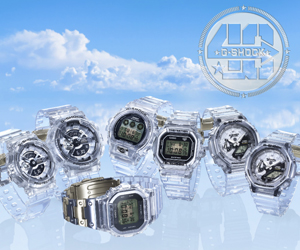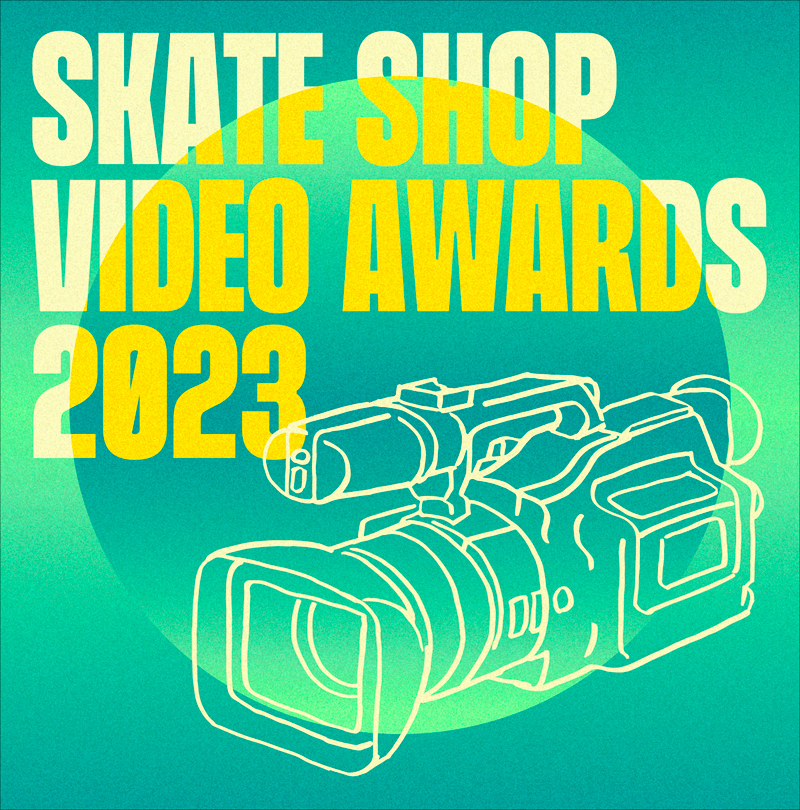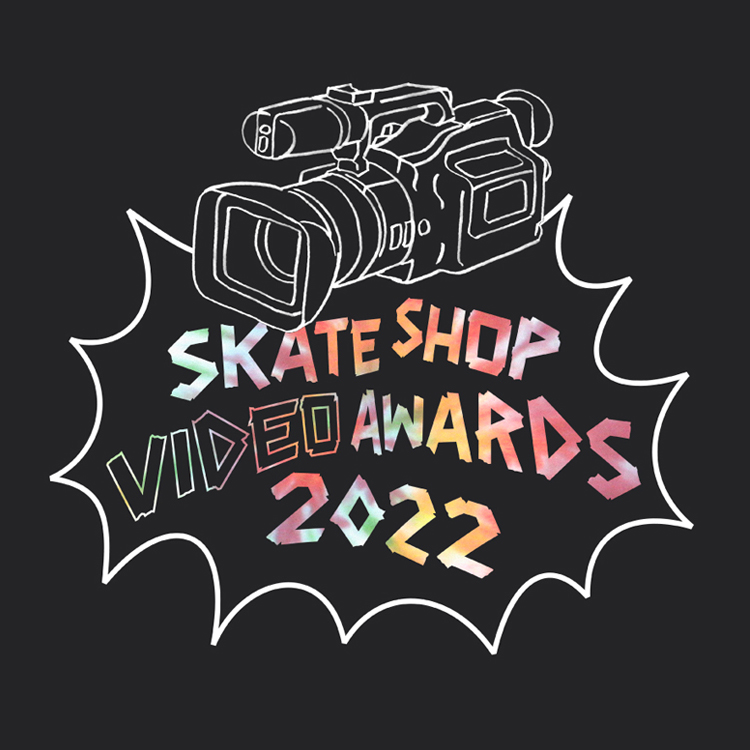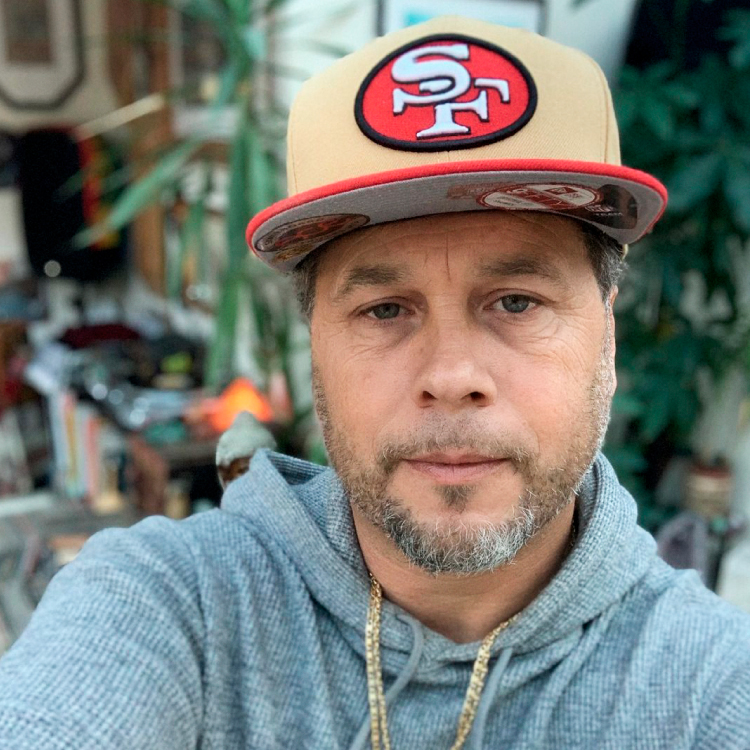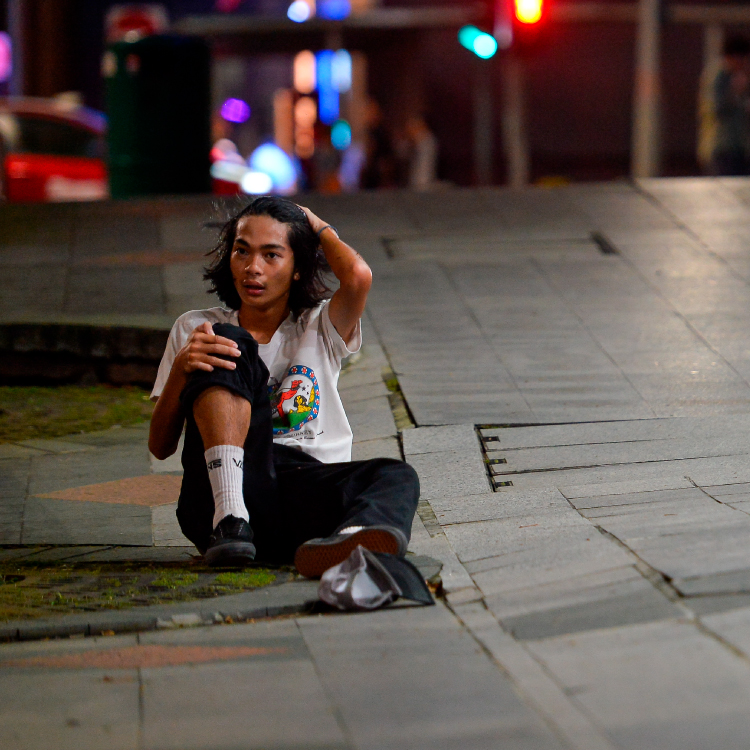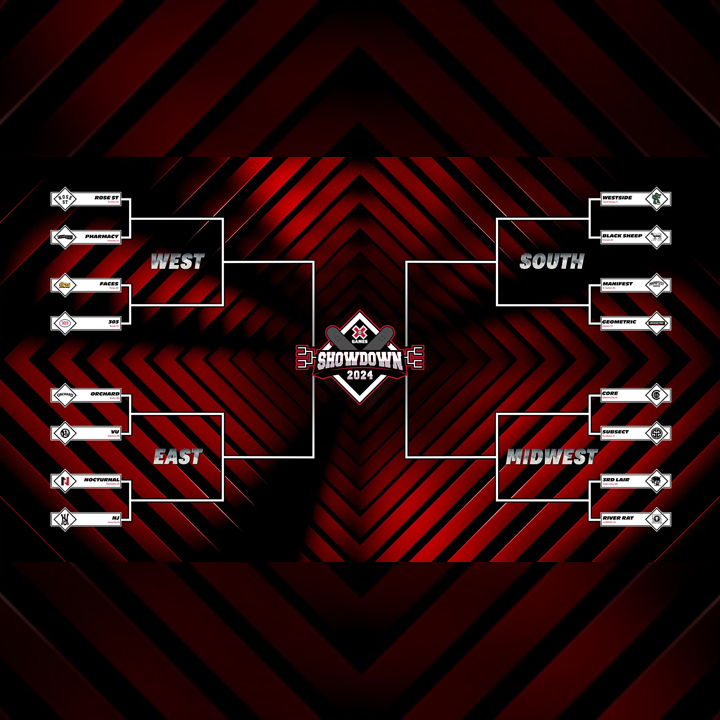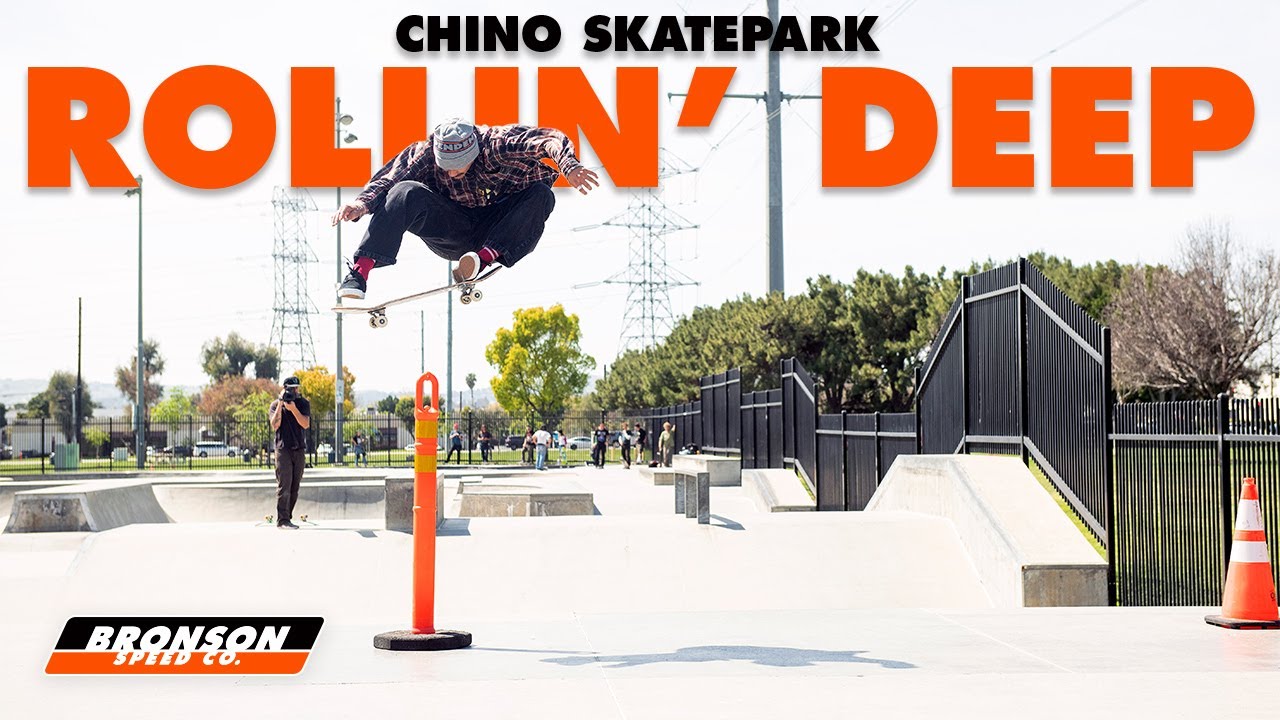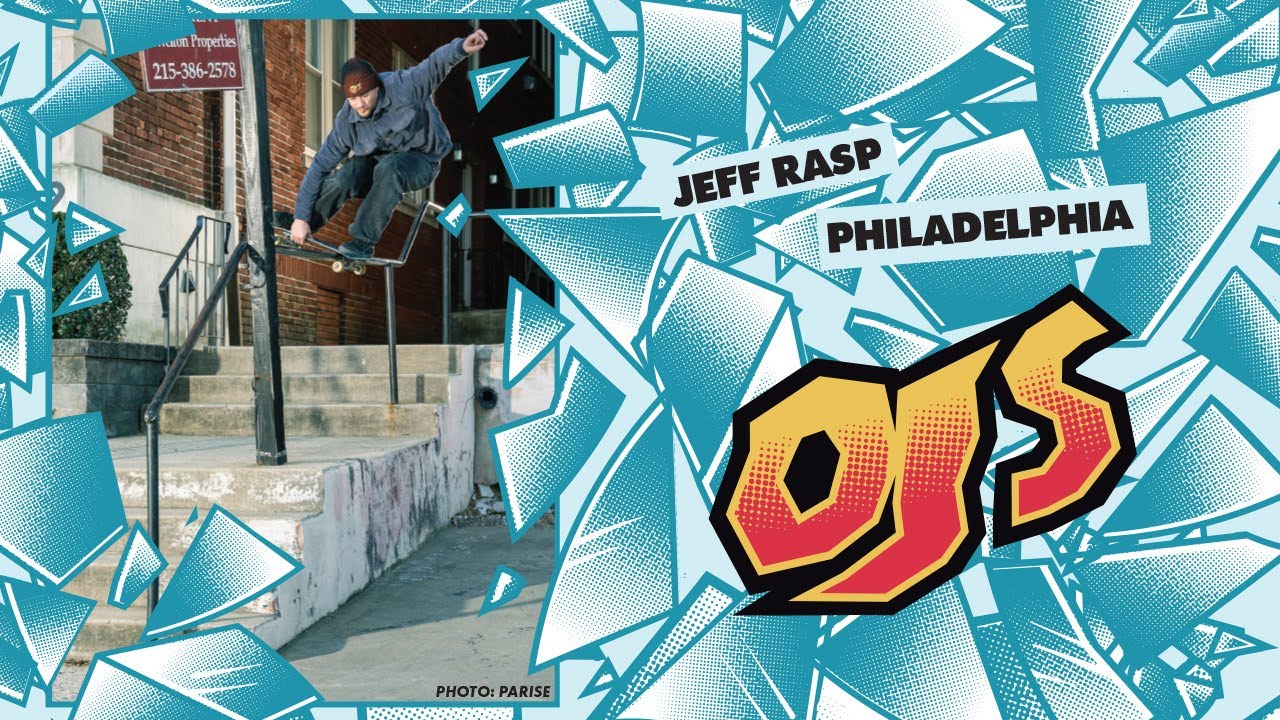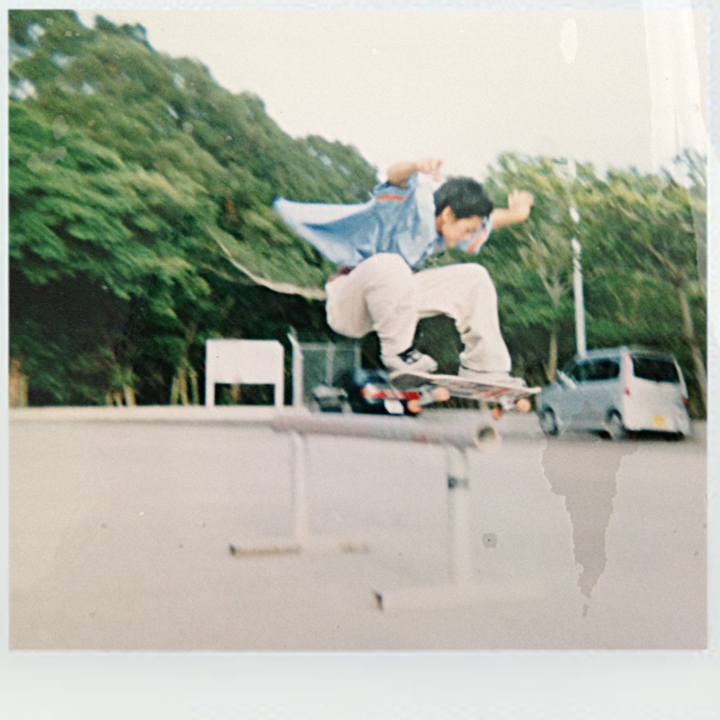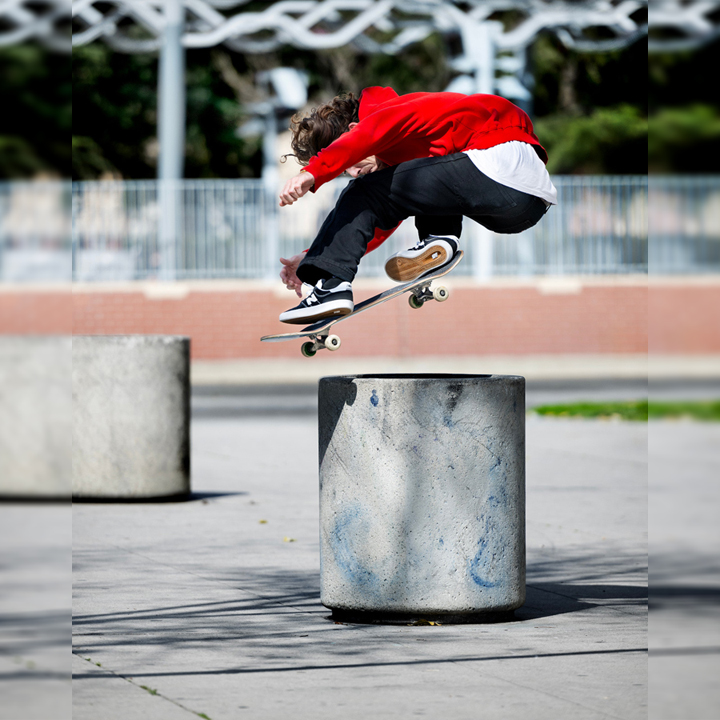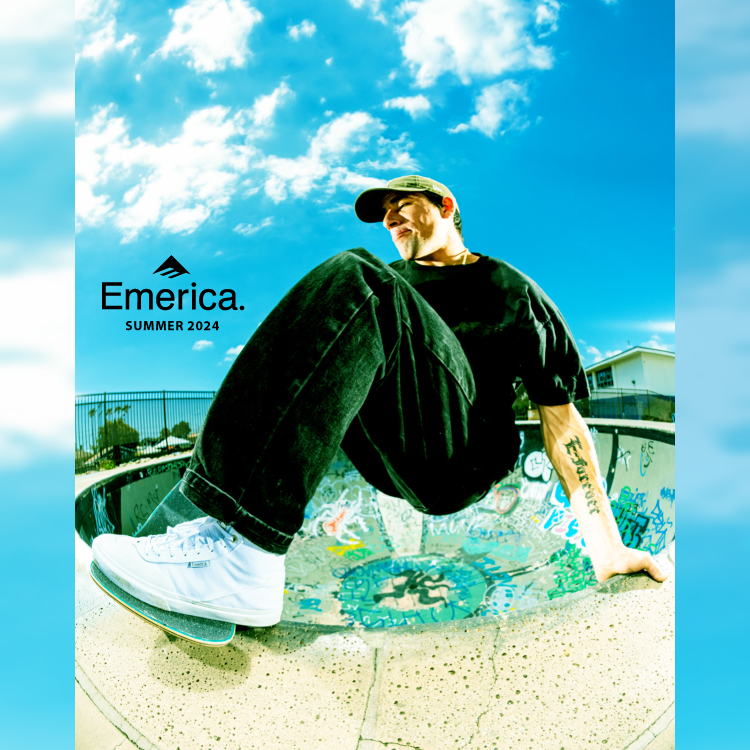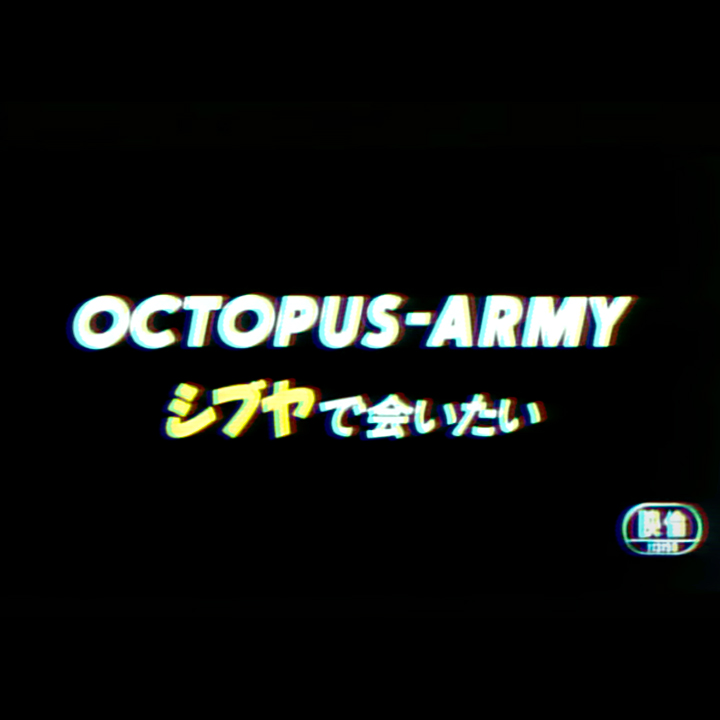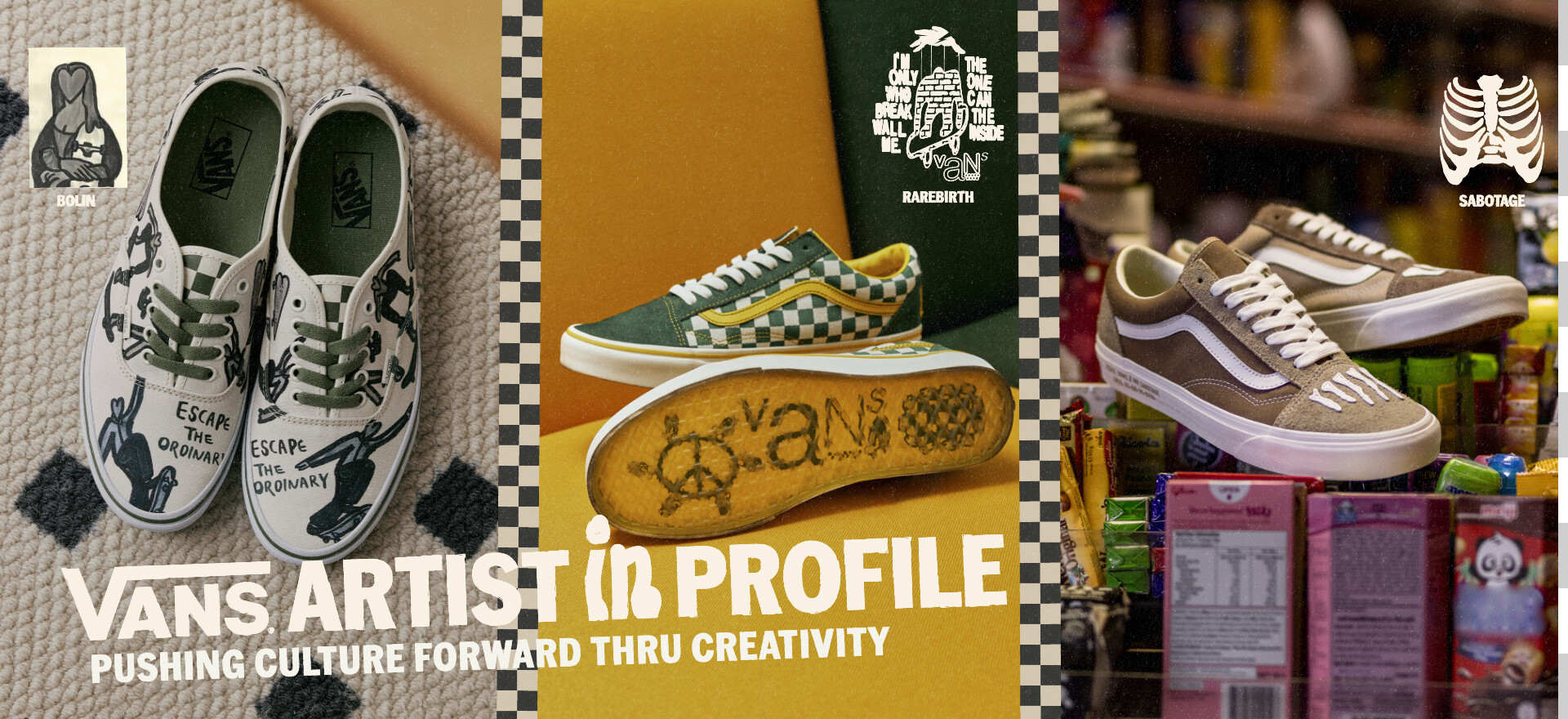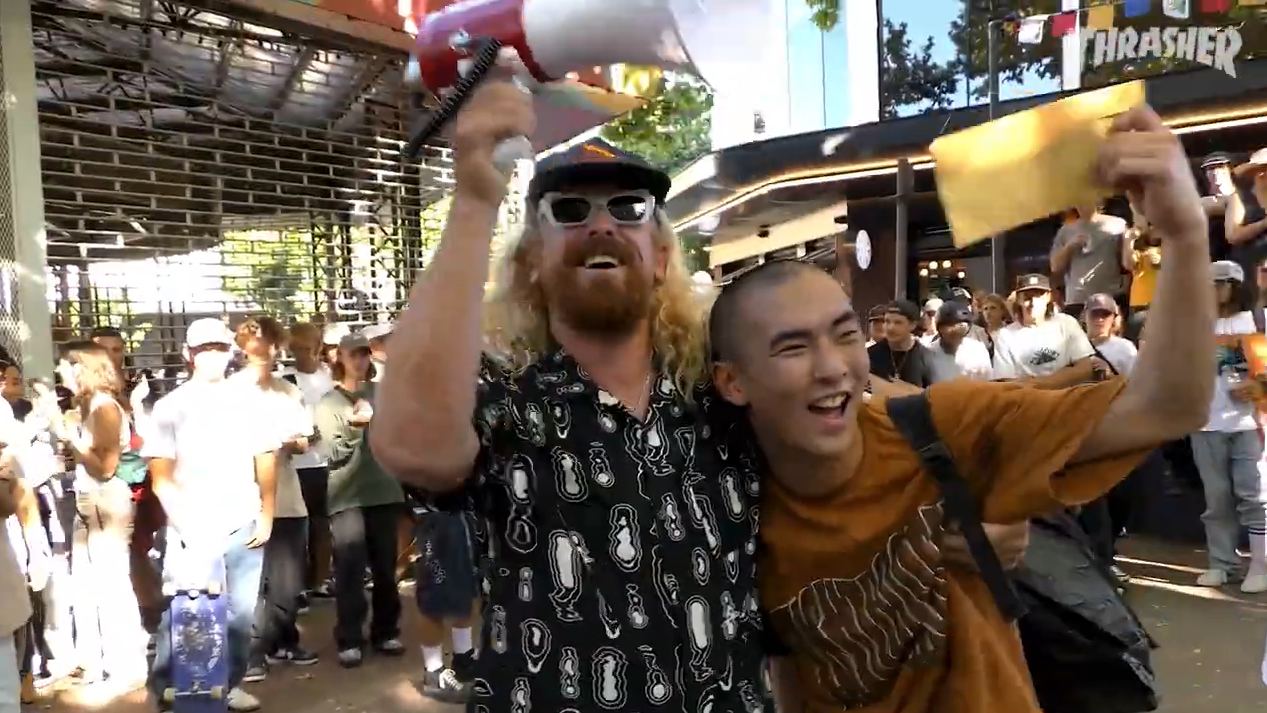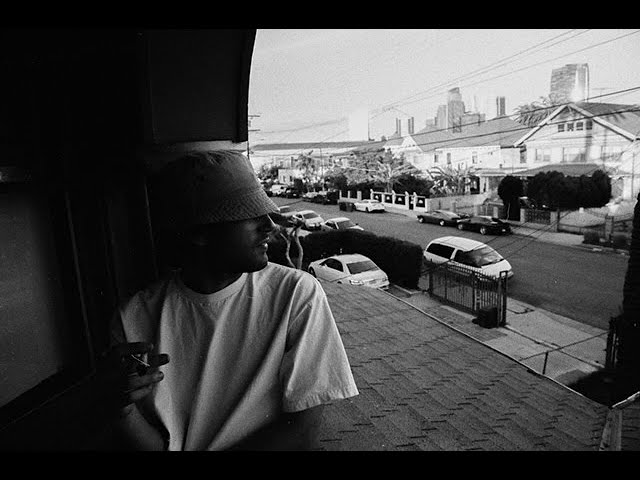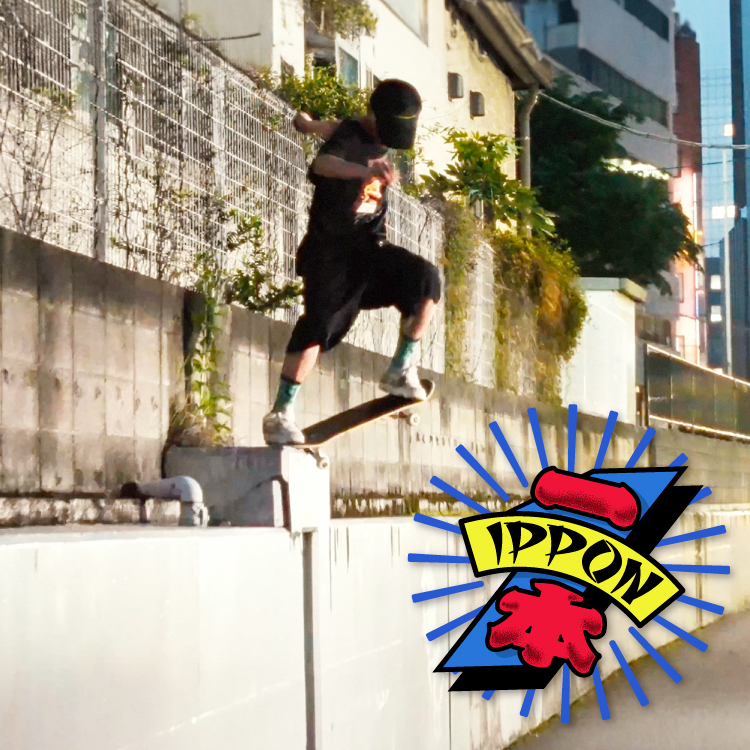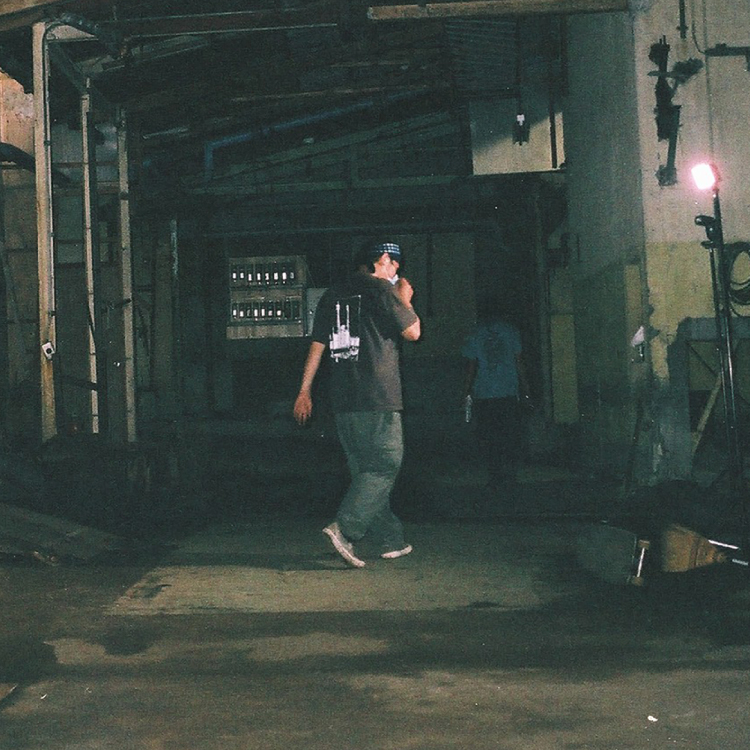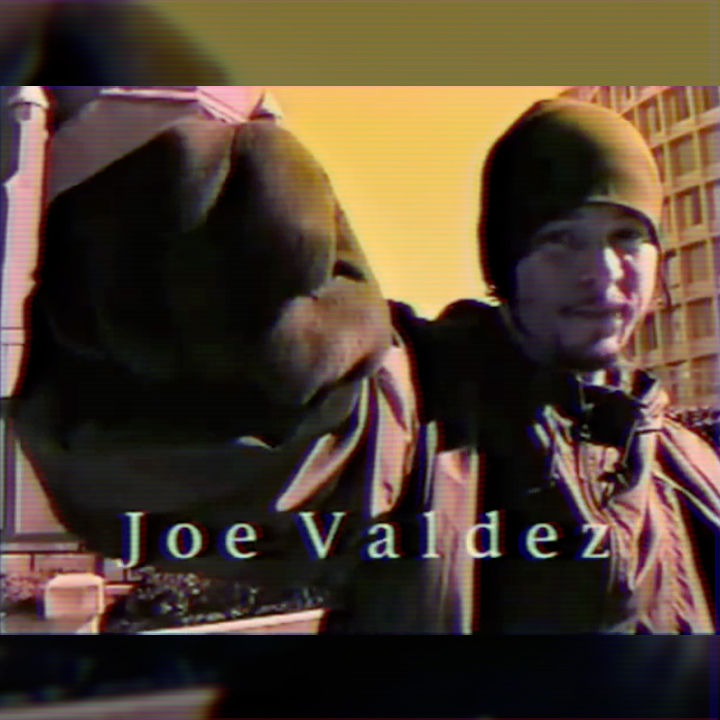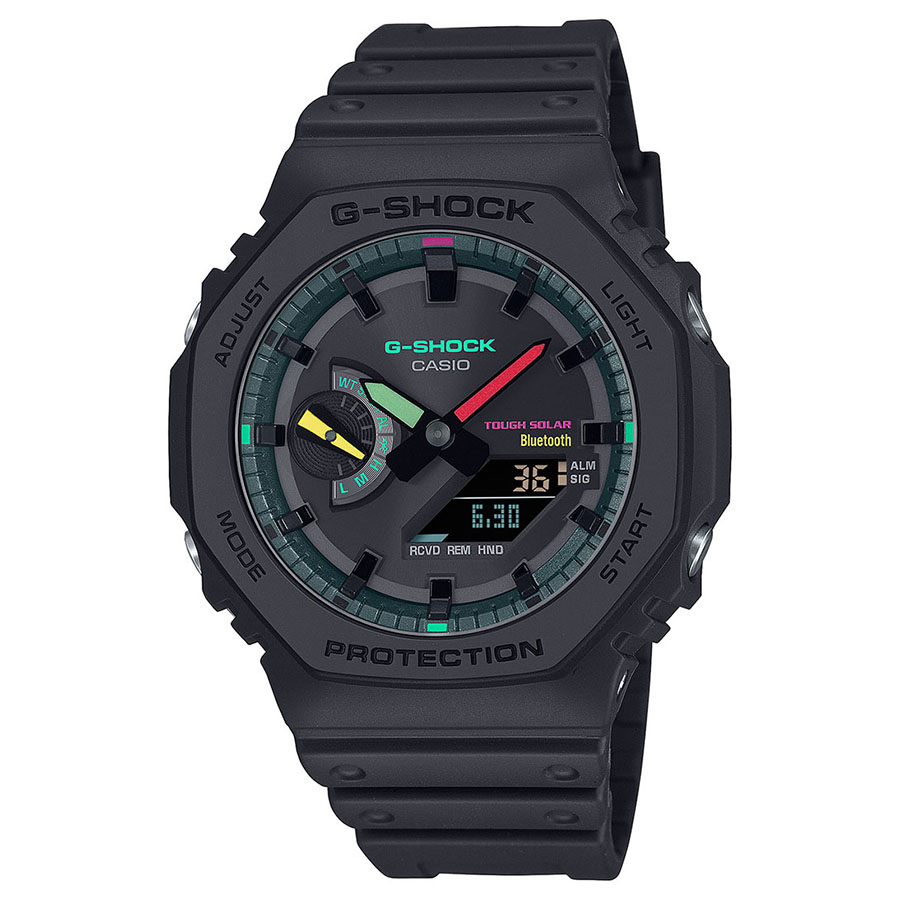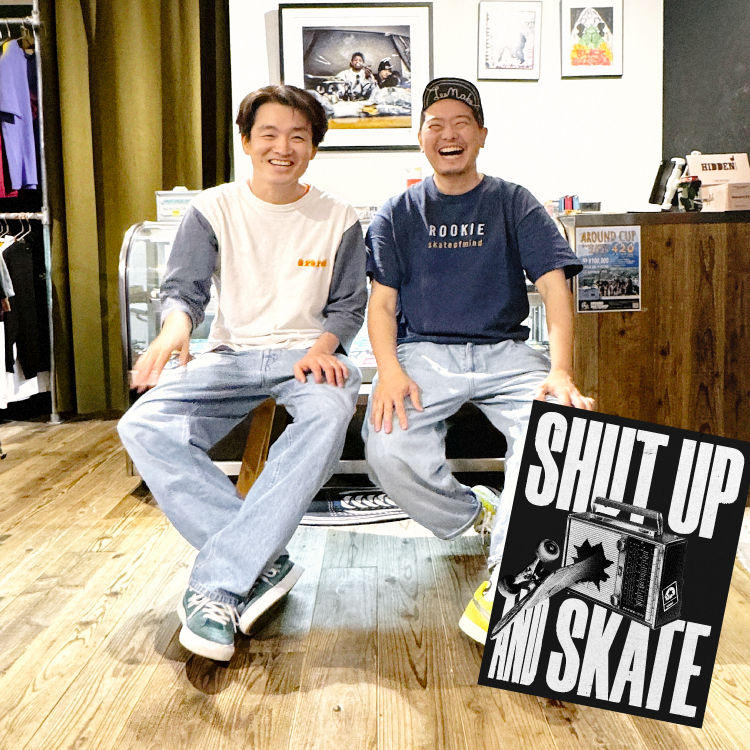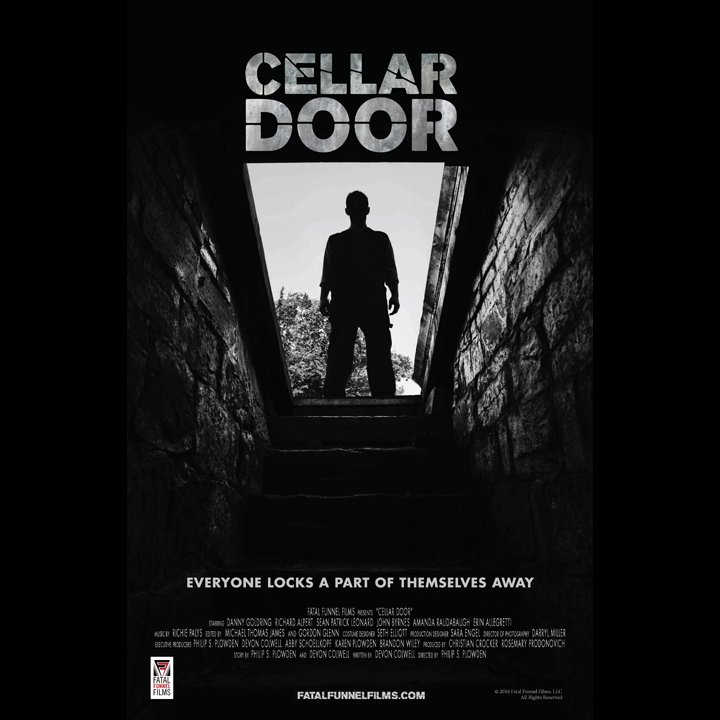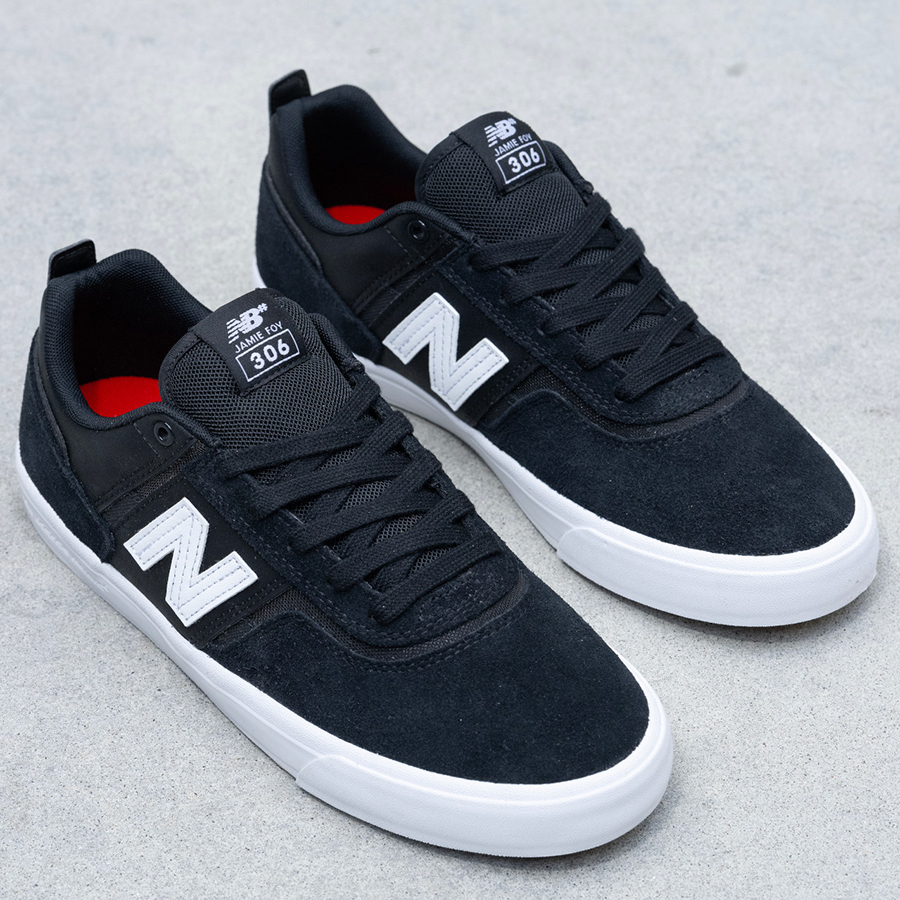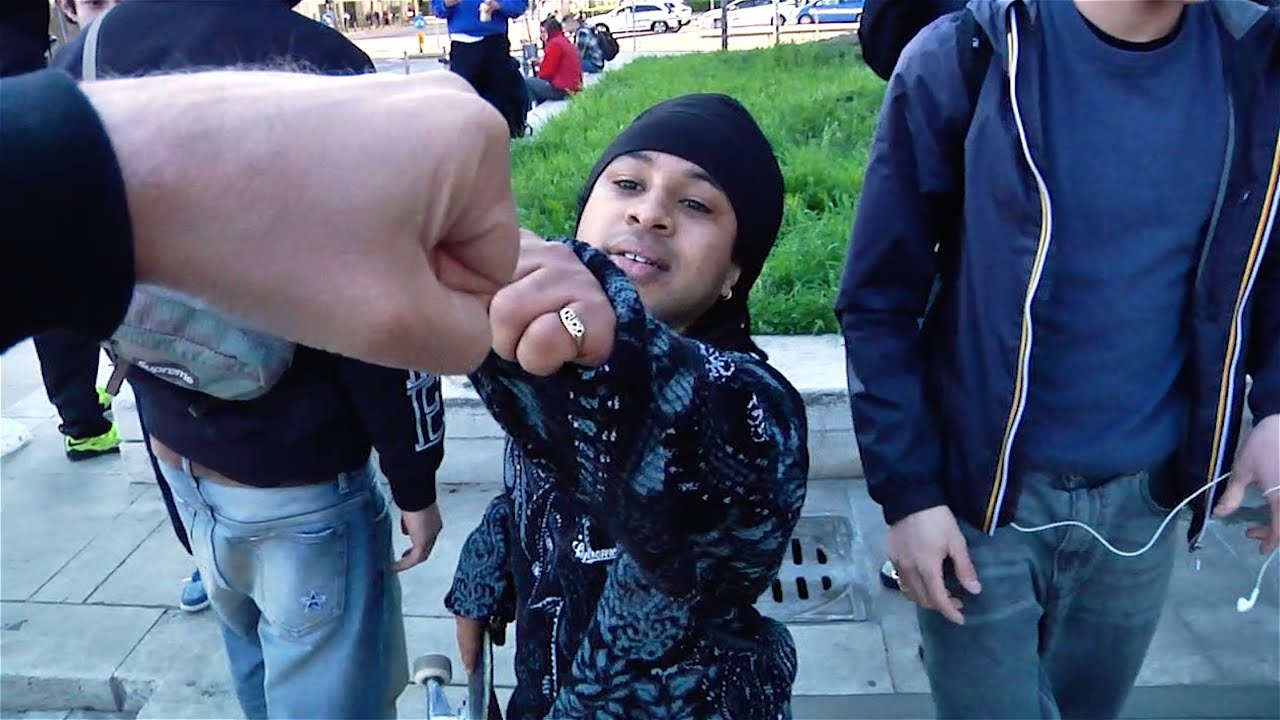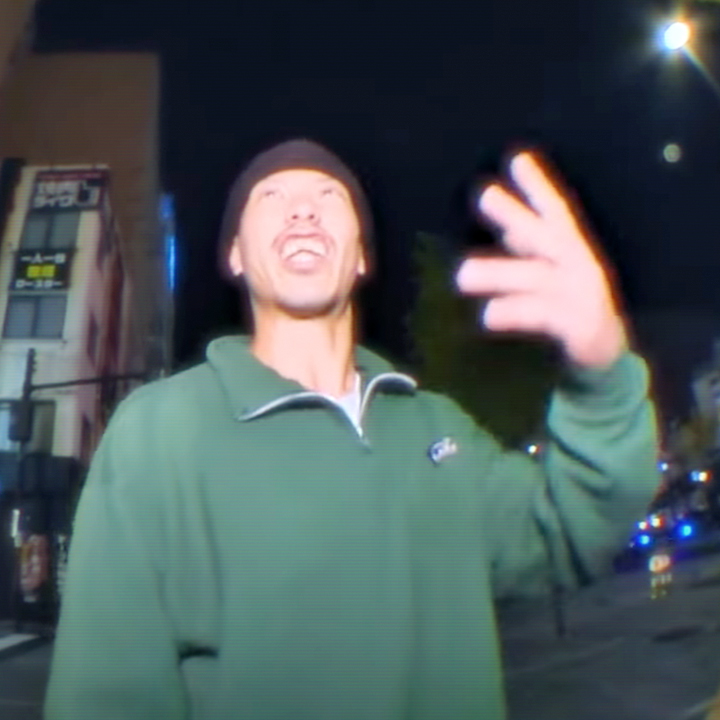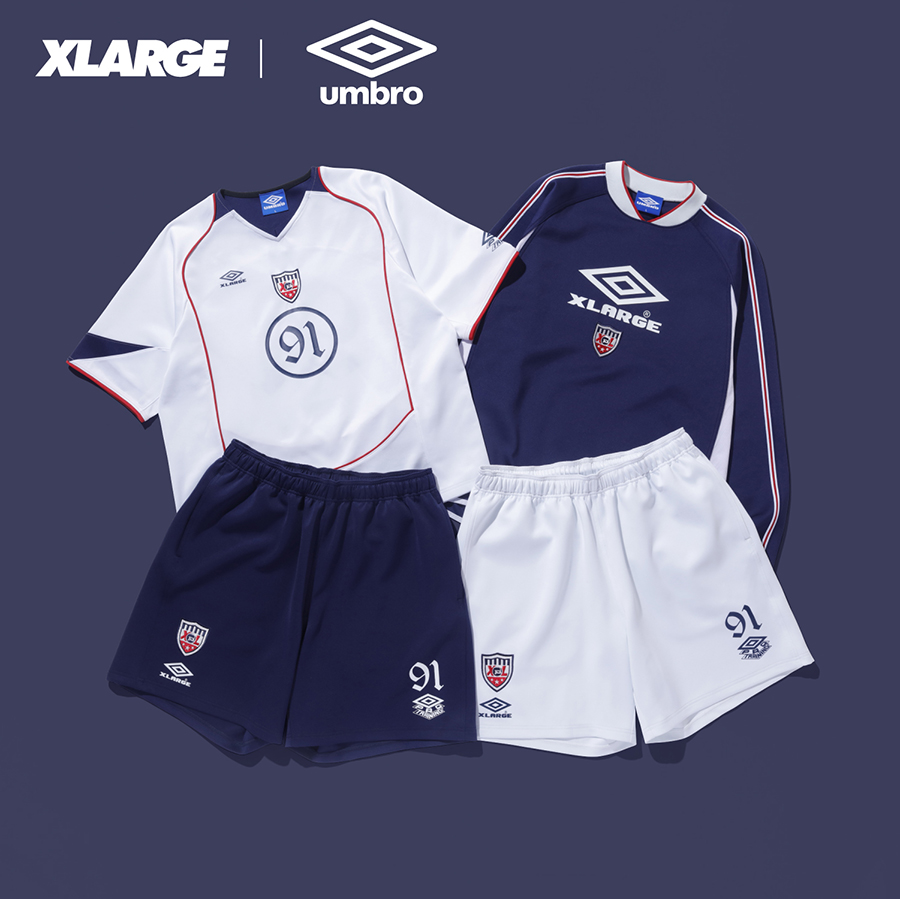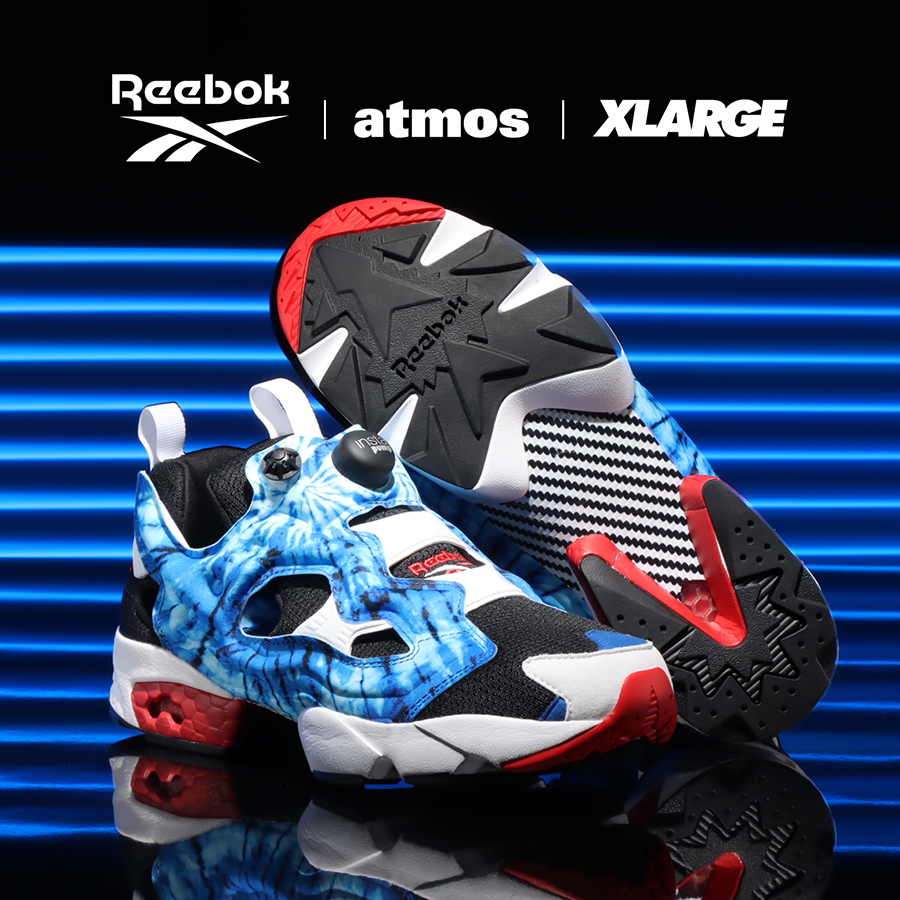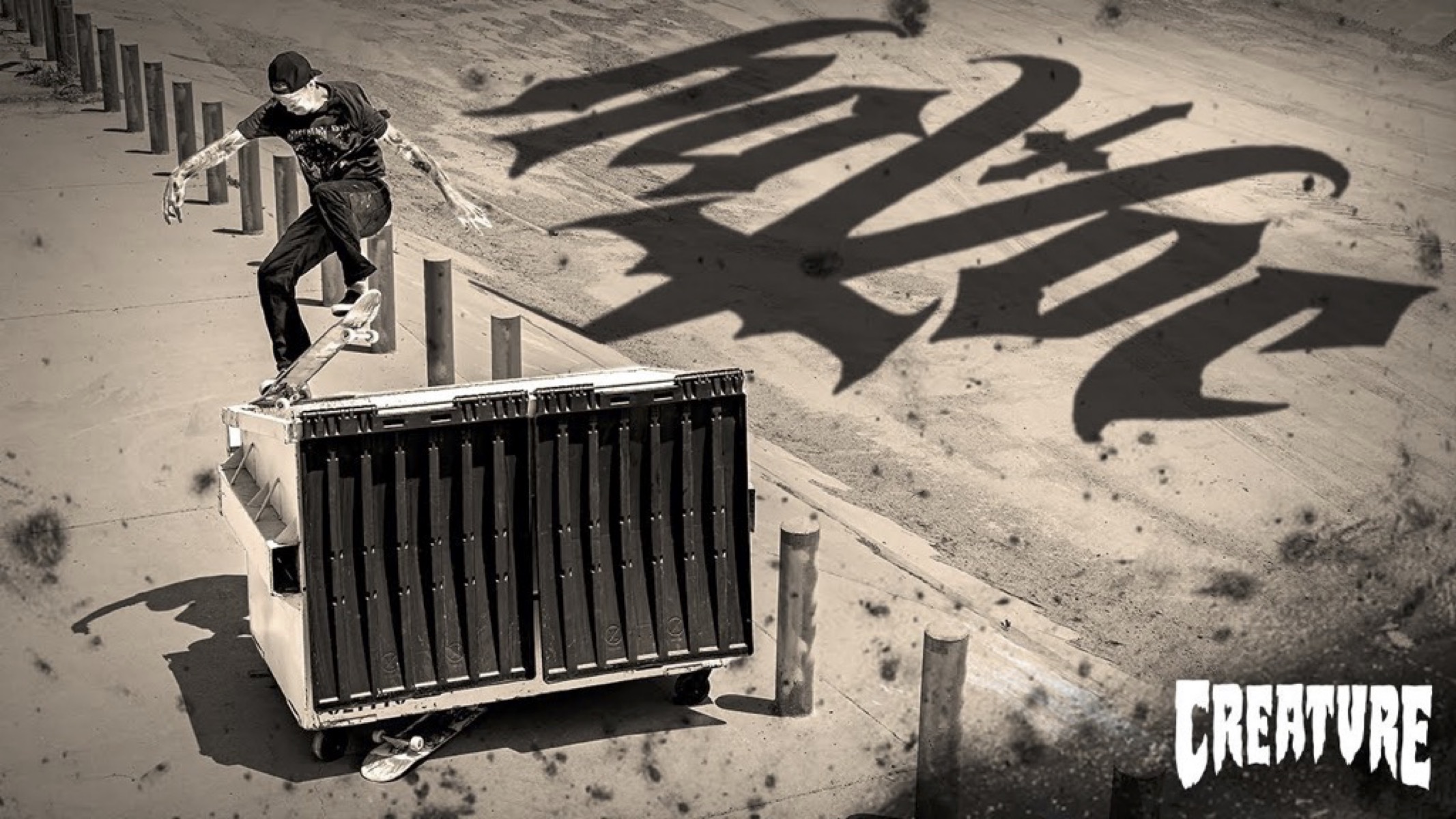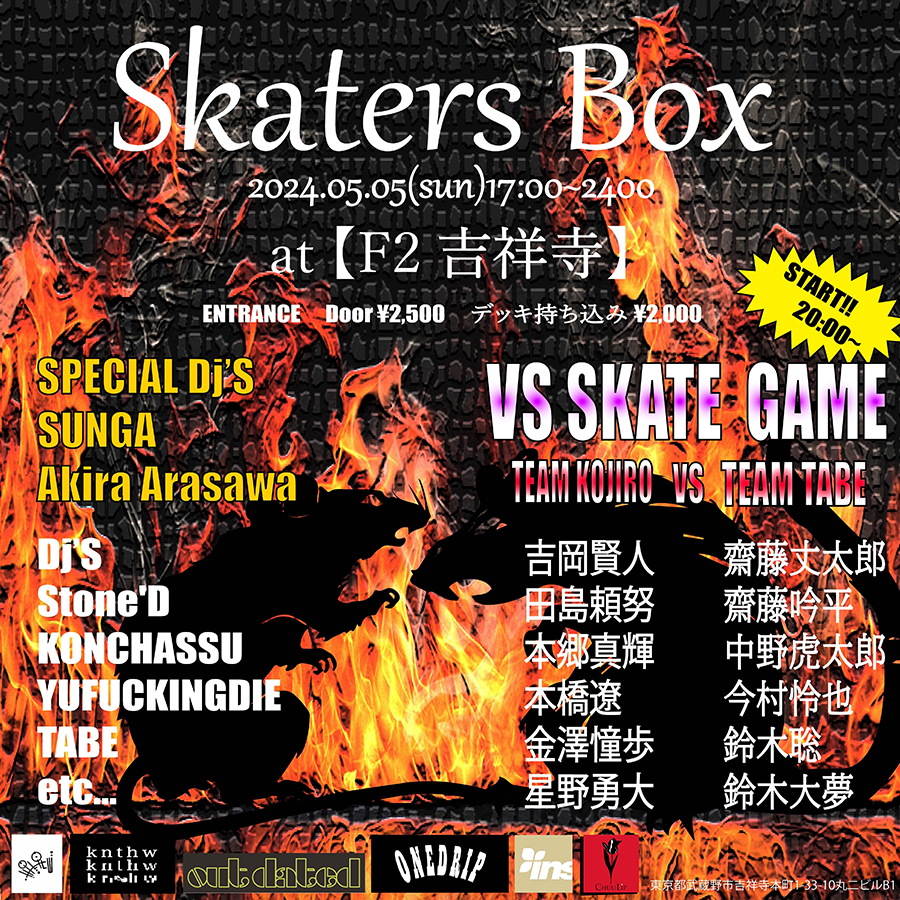Ed Templeton made his way to Tokyo for Now & Then, the retrospective exhibition of the Beautiful Losers. His morality toward work and his skate / art career are something we should all know about.
──ED TEMPLETON (ENGLISH)
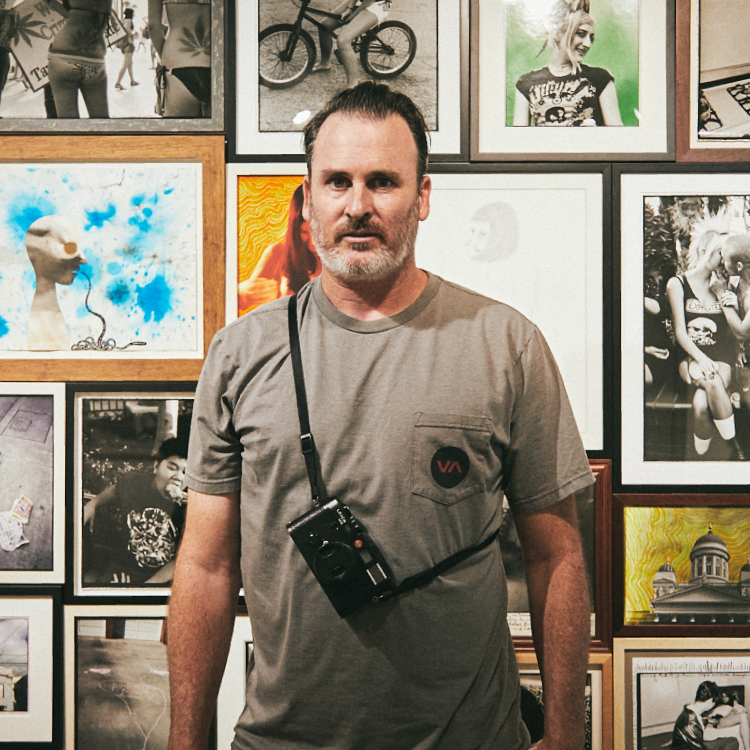
[ JAPANESE / ENGLISH ]
Photo_Junpei Ishikawa
Special thanks_RVCA Japan
VHSMAG (V): I know you've talked about this a thousand times, but what keeps you in Huntington Beach?
Ed Templeton (E): Yeah, I think we set roots there, and I've been thinking a lot about leaving actually. Because I don't like the idea of my biography saying, "Born and worked and lived and died," all in one city. I would like to move somewhere else for a little while. But the reason why I'm in Huntington Beach is just because it's practical. I grew up skating there and the whole skate industry was based in southern California. Tum Yeto, where Toy Machine is distributed is in San Diego. So it's close enough. And in the early days we needed to drive down to San Diego and do work, but now everything is possible through the computer. So there's no reason I should need to stay in Huntington Beach anymore, but we have a house and so it's hard to move.
V: Do you remember Jason Dill living like across the street from you?
E: Yeah. We skated together when he was a little kid. And then strangely enough, he just texted me today to talk about meeting about... because he's painting a lot now. He said he wants to have a talk with me about painting. So it's so funny, all these years later.
V: You're one of the skaters who progressed street skating along with Jason Lee. What was it like back then?
E: Well, at the time you don't really know you're doing it. You just kind of are doing what you do. And it's only when you look back really far that you realize, oh maybe I was part of this movement that changed street skating. But at the moment I didn't really think it. I mean, we were looking at Mark Gonzales and thinking he's the one who's changing everything. Fast forward 20 years, 30 years, then you look back and go, "Oh, I guess I was part of that group too." But I didn't see it that way. I don't think Jason Lee saw it that way. We were just messing around, doing freestyle tricks on our street boards. And then we started going down stairs... At the moment you don't really think I'm making a move or making a progression, you're a kid, you just try stuff like a child does. You just think be creative and try different things. So yeah, I don't know how it felt because it was just regular life at that point.
V: Did you start your career at New Deal?
E: My first sponsor was Schmitt Stix, which turned into New Deal right when I turned pro.
V: How do you feel about your early sponsor coming back after 30 years?
E: It's okay. It's funny because they wanted to do reissues of the old boards, but I've already been doing reissues of my New Deal graphics on Toy Machine.
V: The same graphic?
E: Same ones, because I did those graphics. So instead of being New Deal's they're my graphics, and so I can do them on Toy Machine too. But it's cool. I mean, even with this show, it's the same thing. It's just a celebration of looking back and saying, "Okay, this is a cool thing." I don't want to live in that area where I'm thinking about that and doing that all the time and I want to move forward, but I think it's okay to look back and say, "Hey, this was a fun time." This Beautiful Losers show is like that too, it's 10 year anniversary. And same with New Deal. I think a lot of fans are happy to see just some memories of the old days.
V: You were wearing high water pants way back in the early '90s before it became a thing.
E: Yeah. I mean, I want to say that I was like a fashion guru and had this vision, but really, I just bought some short pants. I bought a pair of Dickies that were 30 inches waist and 30 inches length. Because I thought that sounded cool. I want 30x30 Dickies. So I bought it and then squeezed into them. I wasn't trying to be fashionable, it just happened. And then I think once I did it, I kind of liked it.
V: In New Deal's 1281 video, you used a song about homophobia. Were you always conscious about these social / political issues?
E: Well, I always felt like, if you're going to have a platform to say something... And a lot came from my friend Christian Kline who did Poweredge Magazine in the early '90s or late '80s, he was the one who told me too, he's like, "It's important, because now people are listening. You're a pro skater so everyone's listening to you. They're reading your interviews. Have something to say." You know, that's what he was saying. He's like, "You have a platform, you have a voice. People are listening. Use it in a good way. Bring something out of it." So that was the reason to try to speak about political issues. People are listening, so I might as well say something worthwhile.
V: That makes sense.
E: And then it also put responsibility on me to know what I was talking about, you know? I guess I was interested in those topics too. So I was reading about homophobia and just listening to the punk lyrics at the time and kind of feeling like wanting to understand what these lyrics are about. You're listening to Dead Kennedys, he's talking about the governor in California and what's happening in politics. I don't want to just listen to the music and not know what they're saying. I want to know what they're saying. Fugazi's been really important to me and all their lyrics are very meaningful. Each song says something specific about an issue. So I was like, "If I can do that then I'm sort of passing the torch." I learned from these people and now I'm giving it back.
V: You're known as an artist as well. When was it that you started getting into art?
E: I think I was always into art as a young child, before skating even. But it was becoming a skateboarder and then suddenly being surrounded by a bunch of people that were also creative. All the skaters I grew up with were into punk music. So they had all these flyers on their wall, the band flyers, and the show flyers and all the artwork on those.
V: So that's how you got exposed to art.
E: So I was looking at Raymond Pettibon drawings and all the skeletons and things in the old punk flyers and being interested in that. And then also being a kid looking at the skate shops. I was looking at the graphics and realizing that, "Oh, Neil Blender made this graphic, Mark Gonzales made this graphic." It's not just some guy in an art studio making work for them. They did it themselves. I was so inspired by that that when I got the chance to go pro, I was like, "I'm going to do my own graphics no matter what," because I think that's the coolest way to do it. So I just started doing graphics that way. The same year I turned pro in '90, I also started painting. So my art career and my skate career have been the same all the time.
V: Where did photography come from? Being surrounded by skate photographers?
E: Yeah. A big part of it was learning from them, being around those guys all the time. My job was to basically go out and shoot for the magazine. So I was with these guys watching them work and wanting to understand how the camera worked. They would say something like, "Oh, 500th of a second at F-five," and I was like, "What does that mean?" I want to know what those numbers mean. I learned it that way. But the real moment for me was when I saw some photo books, Larry Clark, Nan Golden, those books really hit me. The power of what photography could do. It made me realize also that I could shoot my group of people. This is four years into being a pro skater, so this was 94, it really hit me. I was actually sad because I had missed four years now of documenting skate culture. I had this realization like, "Oh, I get to travel the world and I'm around all these crazy people who party and travel and skate and break the law, jump fences and skate these places that you're not supposed to skate, and I should have been documenting it the whole time. So starting in '94, I really started always carrying a camera and shooting everything.
V: What do you like to shoot?
E: Well, at first it was skateboarders. I wanted to shoot skateboarding. It was really easy to make something that was for insiders. I could easily shoot a photo of Andrew Reynolds. All the skaters in the world are going to go, "Oh cool, Andrew Reynolds, I know who that is." But I wanted to make a documentary that was able to be explained to someone who's not a skateboarder. I want to tell the story to someone who has no idea who Andrew Reynolds is, what it's like to be a skater. So I wanted to show life on tour, life in the hotels, in the vans, the partying, the celebrity, the girls trying to get their boobs signed, the fans, all the crazy stuff we do on tour. That's the stuff I was interested in at first and I still try to shoot that stuff. But then I left that pretty quick and I started to shoot everything. I was like, you know, if you're in Paris on a skate trip and I'm shooting skateboarders, it's like "I'm in Paris, I'm going to also shoot street photos." So I would just walk around shooting. So it became about one thing, shooting skaters and then it quickly became shooting everything. Everything I see, my relationship with Deanna, people on the streets, skaters, whatever was possible. Everything.
V: How did your photos go out of skate community? How did it reach non-skaters?
E: I don't know exactly. I would go on a trip and then come back and Thrasher Magazine would say, "Hey, we want to use five of your photos from the tour to show the tour along with the skate photos." And people saw it that way. Saw my work, I would talk about it a lot. But then I also started exhibiting. I think in '98 I had a show at Space 1026 in Philadelphia, and that's the first time I showed paintings and photographs together. So I just started showing photographs in the shows I was doing. If someone said, "We want you to do a show," I would bring paintings, photographs, everything and just start going crazy on the walls. And that became my style of throwing a thousand images up if I could. And just making it an immersive environment to walk into. Then I started doing books also, and one year later in '99 I did a show with Aaron Rose at Alleged Gallery and made the Teenage Smoker book. And that book came out and I think maybe... You know, people like to categorize, they like to lump you into one thing or the other. So I think having come out with that book, people were like oh, he's a photographer, and they forget that you're a painter too, or a skateboarder or anything. I do a lot of things, but people really want to just say, you're this or you're that.
V: 20 years later, you're working with Aaron Rose again for this Now & Then show.
E: It's amazing. I think Aaron gave me the biggest step I've ever had in art, starting in '94 the first show I did at Alleged Gallery. He just invited me at random, I think he knew me from the skateboard magazines.
V: That was through Thomas Campbell, right?
E: Yeah, through Thomas Campbell. Aaron was already doing art shows in New York of skateboarders who did art, and he had done a show with Thomas Campbell. Thomas was shooting me for the skate mags, because he was a skate photographer. He saw my paintings and said, "Hey, you should send these to Aaron in New York." So I just sent him a little package with some photographs and he said, "If you can get out of here, we don't have any money, but if you can get out here, we can do a show." So we drove, we rented a van and we put the paintings in it and drove across to New York. Drove across the country and did a show in New York. And that was a big step. And then I kept doing more shows with Aaron and more shows at other places, because once you get seen, then other people know. Back then it was before social media. So people were more in tune to what was happening, and even though Alleged was small, it was kind of a hip place and a lot of cool people knew. Like my first show, Larry Clark was at the show. A lot of cool people in New York knew about the space, but really, it was super small and dirty and very do-it-yourself.
V: Is it true that you've never done commercial work?
E: No. I have done commercial work, but not on a big scale. I'm very choosy with the work. I get a lot of offers, but I just...
V: I heard that because you have Toy Machine, you don't have to take all these commercial work to make living.
E: That's true. I don't need to do commercial work to live, but if something that I might enjoy comes, then I do it. So for instance, I've been offered to, "Hey, we want you to shoot Justin Bieber for some magazine," and I just don't care about Justin Bieber. So I was like, "No, I don't want to shoot Justin Bieber." But then they come to me and say, "We want you to shoot Raymond Pettibon for a magazine." I'm like, "Oh, yeah man, Pettibon's the best, I want to shoot him." So I just take jobs that I would like to do, that are interesting to me, and turn down everything else. Because yeah, I don't need it to pay the bills.
V: And you have a set of morals when taking jobs.
E: Yeah, I've turned down some jobs for that. I had a big offer to do a big fashion brand, a Gucci thing, and then I read about all the... Gucci uses these snakes and alligators in all their shoes and I just didn't want to. I'd rather just turn down the money and not work for a company that is still using leather of weird animals.
Dianna Templeton: Exotic animals.
E: Exotic animals, yeah.
V: How do you approach skateboarding nowadays?
E: The same as I always did. I just don't do it as much as I used to. I think that there was an age when every morning you wake up and like, "When am I going to skate?" That's all you think about. And then as for me, I got older and started doing Toy Machine, art career took off more. So the whole beginning of Toy Machine, I was trying to be a pro skater and doing Toy Machine. So I was really bad at doing Toy Machine, because I was focusing on skateboarding, focusing on art. Now I feel like I have more time to do Toy Machine in a better way. So it's better for Toy Machine that I'm not skating as much. And it's also been good for my art career, because I'm doing a lot of art shows so I have more time to paint.
V: You had a big injury too...
E: And yeah, the injury... I was going as hard as I could up until age 40 and then I broke my leg, and that has just changed everything. I think at that age to get hurt like that where you break both bones and you can see how fucked up it still looks. So there's still two big plates in there.
V: Oh, still?
E: Yeah. 21 screws. Because both bones broke. So the leg was just totally sideways and it came out. The bone came out.
V: The bone came out?
E: Yeah, the bone was poking out of the skin. It was really bad, and they thought I was not going to skate ever again. But my goal was to come back to be able to skate. But then the doctor also said, "If you're going to come back to pro skating, you have to do another surgery and take the plates out. Because you need flexibility in your bones, and with the plates there's no flexibility." So if I land crazy it's going to just break right above the plate. You can see the plate kind of ends there.
V: Oh, yeah.
E: So if I land strange it's going to break here now instead of down there. Cause there's the plates are holding it together, and so I just decided, I'm not going to do the other surgery. I'm just going to take it easy and not try to jump down stairs anymore.
V: You still got that nosebluntslide though.
E: Yeah, I can still skate. Like small things, banks, fun things I still skate. But I don't try to keep up with the kids anymore. Let the kids jump down the stairs. I'll stay on the low step.
V: You had a long skate career that you don't have to prove yourself anymore.
E: I don't have regrets. I had such a great time skateboarding and I don't feel bad, but I feel lucky that I can skate. I feel lucky that I can walk at this point.
V: Most memorable things throughout your career?
E: Oh, man. Too many memorable stories. I mean, think about it. All the different teams I've had over the years, going on tour with Muska and Jamie Thomas, going on tour with Brian Anderson and Brad Staba, and going on tour with Bam Margera, there's so many different stories and crazy things that have happened over the years. For me, I feel like I just did what any person would do. I skated, I did art, I took the chances that I had when I was able to. Then two years ago, they put me in the Skateboard Hall of Fame. That was crazy. That's a memorable moment for me, because I didn't think I was worthy of being in the skate hall of fame. I thought there's so many people that should be in before me...
V: You're humble.
E: So the fact that they said that, was just like, yeah, I don't know what to do. It was crazy. So I'm just amazed that people cared. Because I don't know, I didn't feel like I did anything special. I never felt like I was the best skateboarder. I never felt like I was the best anything. I just did stuff. I don't know how to explain it, but I was very honored, and for me that's a good experience at the very end.
V: Much respect. What's next for you?
E: We're releasing a Toy Machine video in October, first full length in I don't know how long. Because all the sponsors now, it's so different. Skateboarding has changed. These guys have shoe sponsors that have videos coming out and so they're always doing something and it's hard to get the whole team together all at once to give all their footage to one project. So finally, we got that to happen. So I'm excited. Lots of book projects in the future. Lots of art shows. I do the same stuff. I feel like when people say, "What have you been doing?" I'm like, "The same thing." I still do Toy Machine. Still do art shows. Still do photography. It's like the same old.
Ed Templeton
@ed.templeton
Born in 1972 in Huntington Beach, California. He started his skate / art career in '90 and he's known for progressing street skating in its early stages. Currently he works on his brand Toy machine and continues to make art.
